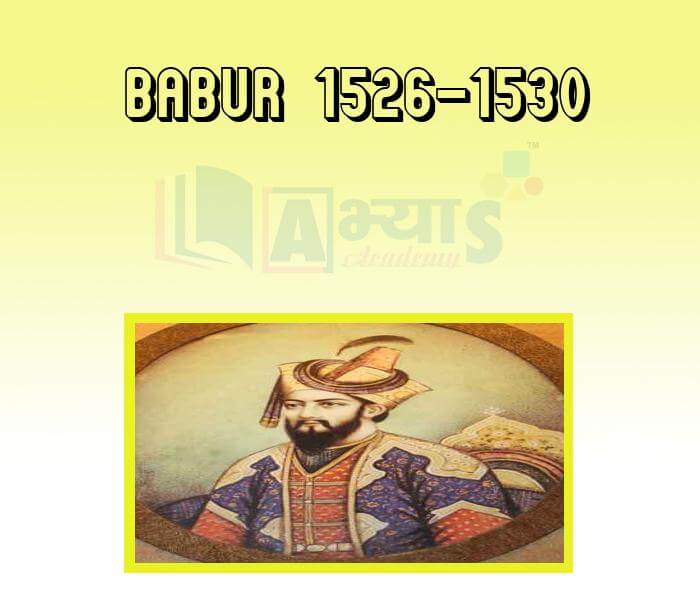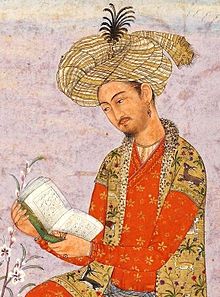Babur 1526-1530









Babur 1526-1530
Babur 1526-1530: Babur was born in 1483. He was the first Mughal emperor (1526-1530). Succeeded to the throne of Ferghana in 1494 when he was only 12 years old. He was forced to leave his ancestral throne due to the invasion of another Mongol group, the Uzbegs. After years of wandering he seized Kabul in 1504 when he was 12 years old. He now began to look towards India, about whose wealth he had heard many stories. He made four exploratory attacks into India, none of which were very successful. He was invited b Maharana Sangram Singh, king of Mewar, and Daulat khan Lodhi, In 1526 he defeated the sultan of Delhi, Ibrahim Lodi, at panipat and captured Delhi and Agra.

Which Mughal King was more as an adventurer than ruler? | |||
| Right Option : A | |||
| View Explanation | |||
In which of the following location Babur died ? | |||
| Right Option : A | |||
| View Explanation | |||
Students / Parents Reviews [10]
Abhyas is a complete education Institute. Here extreme care is taken by teacher with the help of regular exam. Extra classes also conducted by the institute, if the student is weak.

Om Umang
10thOne of the best institutes to develope a child interest in studies.Provides SST and English knowledge also unlike other institutes. Teachers are co operative and friendly online tests andPPT develope practical knowledge also.

Aman Kumar Shrivastava
10thBeing a parent, I saw my daughter improvement in her studies by seeing a good result in all day to day compititive exam TMO, NSO, IEO etc and as well as studies. I have got a fruitful result from my daughter.

Prisha Gupta
8thIt has a great methodology. Students here can get analysis to their test quickly.We can learn easily through PPTs and the testing methods are good. We know that where we have to practice

Barkha Arora
10thIt was good as the experience because as we had come here we had been improved in a such envirnment created here.Extra is taught which is beneficial for future.

Eshan Arora
8thMy experience with Abhyas is very good. I have learnt many things here like vedic maths and reasoning also. Teachers here first take our doubts and then there are assignments to verify our weak points.

Shivam Rana
7thMy experience was very good with Abhyas academy. I am studying here from 6th class and I am satisfied by its results in my life. I improved a lot here ahead of school syllabus.

Ayan Ghosh
8thI have spent a wonderful time in Abhyas academy. It has made my reasoning more apt, English more stronger and Maths an interesting subject for me. It has given me a habbit of self studying

Yatharthi Sharma
10thIt was a good experience with Abhyas Academy. I even faced problems in starting but slowly and steadily overcomed. Especially reasoning classes helped me a lot.

Cheshta
10thA marvelous experience with Abhyas. I am glad to share that my ward has achieved more than enough at the Ambala ABHYAS centre. Years have passed on and more and more he has gained. May the centre flourish and develop day by day by the grace of God.
